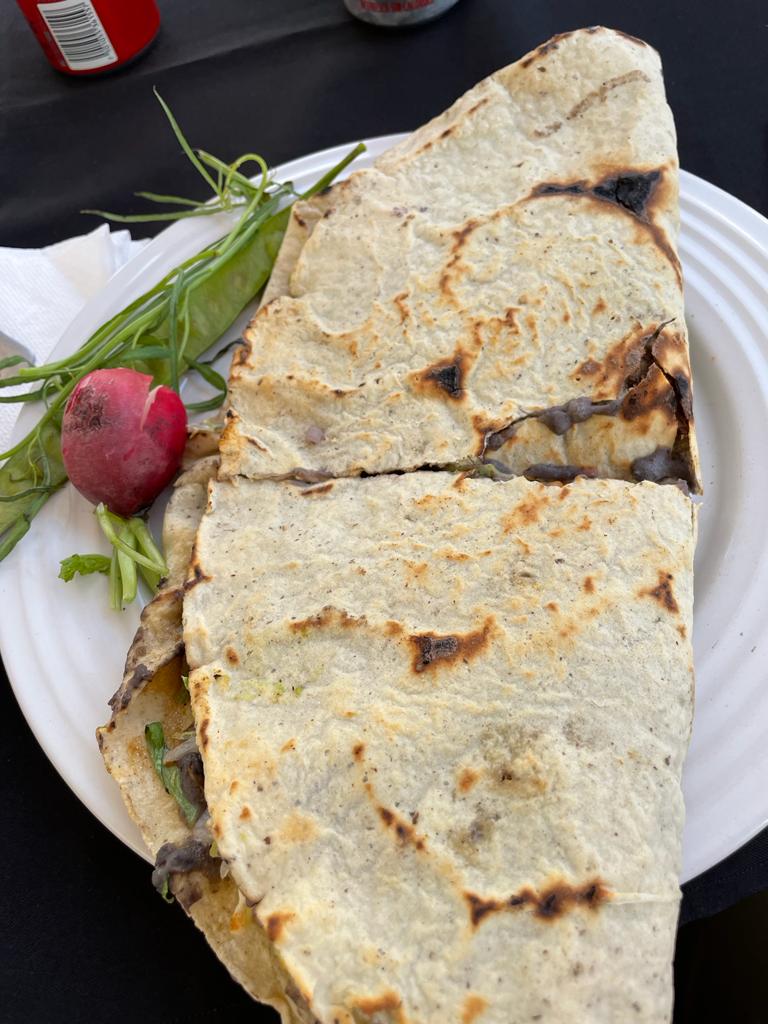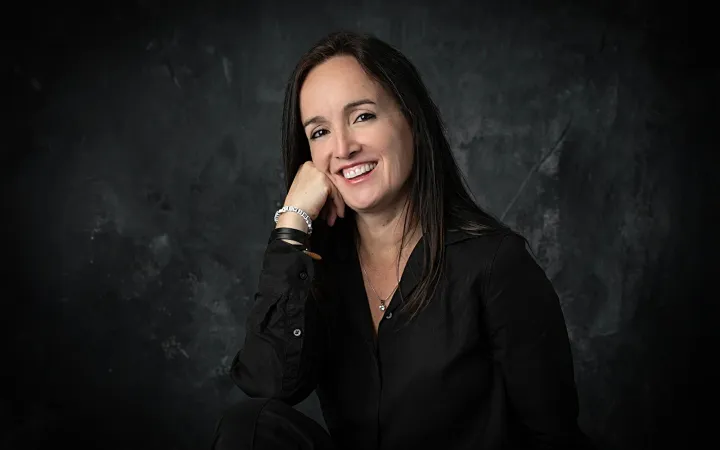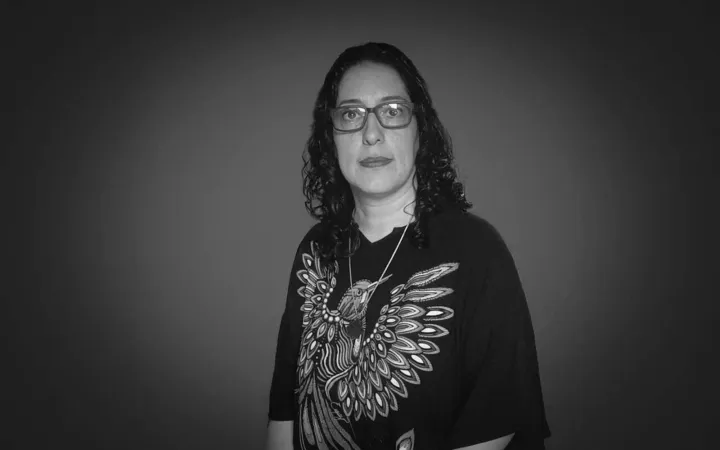Estoy perdida e irremediablemente enamorada de Oaxaca, su cielo, su mezcal, sus calles, su comida. He probado tlayudas en distintos restaurantes, sin embargo, la más rica que he comido fue en Santa Inés Yatzeche. A tan solo 45 minutos del centro de la ciudad está esta comunidad de poco menos de mil habitantes donde el 70% son mujeres. ¿A dónde fueron los hombres? Migraron. “Yo no dejo que mi marido se vaya, se va a enamorar de una gringa y se olvida de mí”, me cuenta entre risas una de sus habitantes. A todos y todas nos observa una inmensa escultura: es la de una mujer arrodillada frente a un comal, sosteniendo una tlayuda. Ella las representa a todas, o mejor dicho, las representaba.
“Que ninguna mujer se vuelva a arrodillar”, dice Eufrosina Cruz, consciente del doble significado de su frase. Esther me muestra su cocina, forma parte de un cuarto que separa sus áreas con líneas imaginarias. Ahí vive con su suegra, su suegro, su esposo y una niña desde hace 10 años. No solo trabajaba hincada frente al comal, el tizne en el techo es la muestra gráfica de lo que también llegaba y seguramente pintó sus pulmones durante años. “Ahora ya no, ahora es diferente, ya puedo hacer tres tortillas o cuatro tortillas sin inhalar humo” (se refiere a los paquetes de tlayudas). Su rutina de antes: despertar a las 4 a.m., lavar su nixtamal, ir al molino media hora y a las 5 a.m. empezar a hacer las tortillas, a las 9 a.m. preparar a su hija para ir a la escuela, desayunar y luego a hacer tortillas otra vez hasta las 12 o 1 p.m. Pero ahora termina a las 9 a.m. Al día hace 100 piezas, que después vende. Si puede evitar mandarlas en moto, porque eso le cuesta, le pide a su suegro que se las lleve en bicicleta, y con el sobrante compra un queso para la familia o una fruta para su hija. La moto le cobra $20 por bolsa de tortillas, generalmente se lleva dos. La tienda a donde entrega le paga $200, menos los $40 de la moto, $20 del molino, menos la cal, la leña, el maíz, le quedan cuando mucho $100. Le pregunto qué hará ahora que ha ganado un poco de tiempo libre: “jugar más con mi niña y a ver si nos pueden ayudar a dónde vender y que paguen más, para ganar más dinero. Ya tengo un fogón nuevo, pero quiero también una cocina nueva y lámina nueva”. Me lo cuenta todo mientras lleva la mirada a los distintos lugares como si pudiera ya ver las modificaciones en su hogar. Esther se está permitiendo algo que hasta hace unos años le hubiera sido imposible: soñar. Las chicas de Santa Inés se casan a los 14 años, en promedio; a los 15 ya llevan un hijo en brazos. El máximo grado escolar es una telesecundaria y aunque hay bachillerato a unos cuantos kilómetros no es fácil que las mujeres se trasladen sin compañía de un pueblo a otro, corren riesgos. Sin embargo, ella tiene para su hija un destino distinto al suyo: “quiero que vaya a la escuela, que sea algo en la vida y no esté así como yo”.
¿Por qué a Esther ya no le duele el cuerpo? ¿Por qué puede imaginar otra cocina, pensar en vender más y a mejor precio? La respuesta es maravillosa, esperanzadora e involucra esfuerzos de muchas personas: una niña que salió de la montaña, la iniciativa privada y organizaciones de la sociedad civil.
Eufrosina me repite varias veces: “yo no quiero que me admiren, quiero que me ayuden, quiero que me digan cómo van a llevar este peso conmigo”. Así, con esa idea, la de ayudar a una comunidad que ella conoce, y que además de sus tantas mujeres tiene en la presidencia municipal a la primera mujer que se reelige en ese puesto, en un pueblo que se rige por usos y costumbres, fue que llegaron de la mano de Coca-Cola México y Fundación Coca-Cola para hacer un cambio que, a pesar de parecer simple, no lo había hecho nadie más.
En un proyecto que duró poco más de un año, 60 mujeres productoras de tlayudas dejaron de arrodillarse en sus cocinas porque les construyeron hornos dentro de sus casas con un modelo específico para sus necesidades, no un horno importado de las mejores cocinas… un horno que les sirviera a ellas, con su comal, a la altura de su cintura para que los huesos no dolieran al terminar de cocinar, y con una chimenea para alejar el humo de sus casas y sus pulmones. Para que pudieran seguir haciendo lo que saben hacer, pero de una forma más cómoda, más sencilla y también más segura. El asunto no termina ahí, crearon una alianza con la Cámara Nacional de la Industria Restaurantera y Alimentos Condimentados (Canirac) para que sus productos lleguen directamente a los restaurantes y con un precio justo. Comparten un nuevo molino que les permite ahorrar tiempo y esfuerzo. Y también de la mano de la organización Global Environment & Technology Foundation y Neta Cero tienen un sistema de captación de agua de lluvia que puede almacenar y filtrar 200 mil litros de agua.
Para cerrar, inauguraron también un mural como parte de la campaña “El amor multiplica”, llamado Mujer fuerte, que sin duda retrata a quienes sostienen a esta comunidad.
¿La tlayuda? De entrada imagínense que la tortilla está recién hecha, con su asiento, frijoles sin miedo a que se terminen, lechuga, mucho quesillo y tasajo, y para disfrutarla darle un beso al mezcal que sale de una botella sin nombre, y de inmediato soplar un poco para que no queme al pasar. ¿No han ido a Santa Inés? Pues vayan pronto, para que dentro de un futuro cuando vean por todos lados una marca de sus tlayudas sepan en dónde inició todo este sueño.

Provecho.
—
Conoce a Esther…
@PamCerdeira
Las opiniones expresadas son responsabilidad de sus autoras y son absolutamente independientes a la postura y línea editorial de Opinión 51.
Más de 150 opiniones a través de 100 columnistas te esperan por menos de un libro al mes. Suscríbete a Opinión 51.





Comments ()